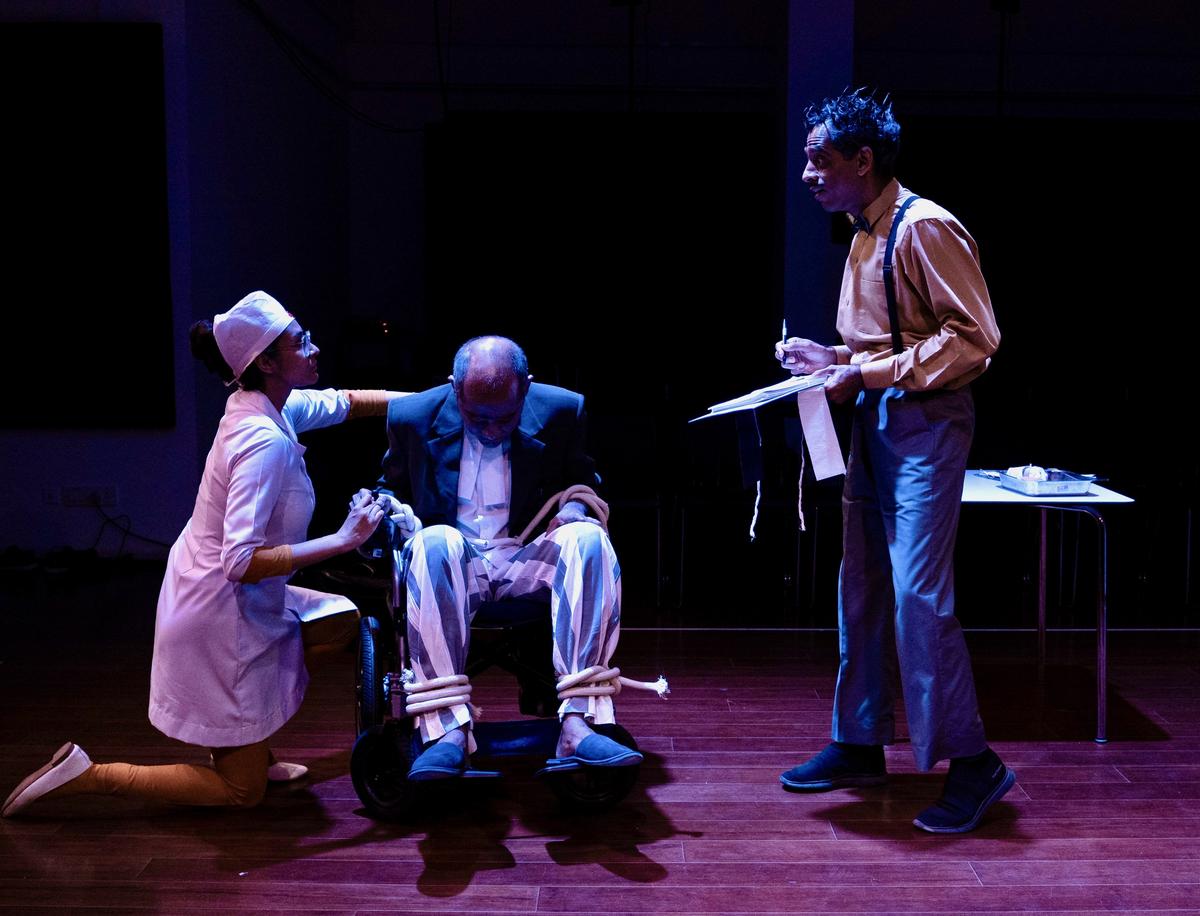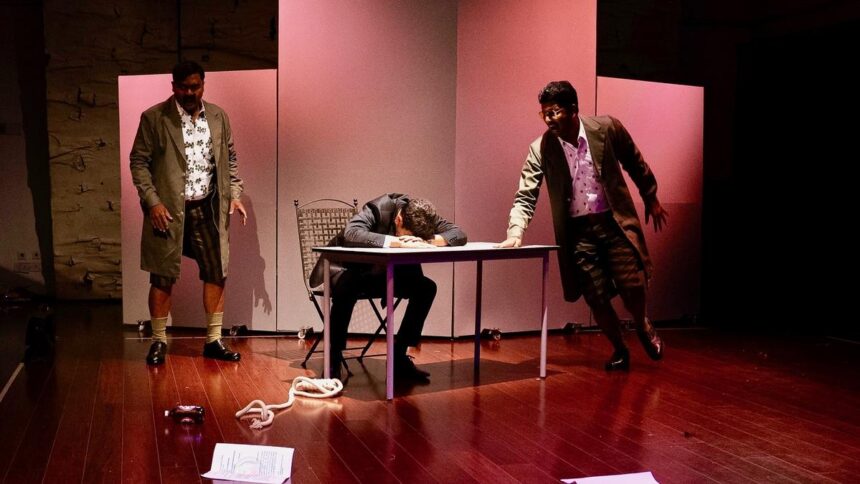[ad_1]

Still from the play Innocence.
| Photo Credit: SPECIAL ARRANGEMENT
Franz Kafka’s The Trial has long been an iconic work on existential dread, bureaucratic absurdity, and the alienation of modern man. When this literary masterpiece is adapted for the stage, it presents a unique challenge to translate Kafka’s twisting narrative and haunting themes into a live performance. Writer and director Anmol Vellani’s Innocence, a play based on Kafka’s The Trial, suggests that India has become more Kafkaesque in recent times.
Presented by Toto Funds the Arts (TFA) and supported by Goethe-Institut, the production will be presented at Ranga Shankara, J.P. Nagar, on August 16 and 17.
In a fix
As the synopsis of the play suggests, Innocence tells the story of a man accused of committing a crime, although he is never told about the nature of his offence. He refuses to plead guilty, despite being told by everyone he meets that it is in his best interest to do so. Believing that the scales of justice will eventually tilt in favour of a blameless man, he struggles to prove his innocence, but it leads to dead ends and drives him to despair. He becomes suspicious of everything and everyone. He neglects his lover and fires his lawyer and is reduced to a sorry figure — exhausted, impassive and alone. In the end, his innocence does not help him to escape the clutches of the law, but neither is the state able to find a shred of evidence to prove his guilt. How will this impasse be resolved?
Speaking to The Hindu, Anmol said that though Innocence is set in 21st-century India, the novel’s sequence of events, its key characters and their relationships and interactions, reappear in the play.
“Writing a play based on material drawn from The Trial, but less than one-third its length, posed its own challenges. Many episodes had to be shortened or removed altogether; some characters had to be omitted. Sometimes the demands of drama forced my hand in other ways. I found the need to merge many characters into one, invent the odd scene or interplay between the characters, place material from one scene in the novel in a different scene in the play, and so on. But despite these changes, the play stays close to the central narrative of the novel,” he says.

Anmol says that he chose to write the play as a black comedy because it is a theatre idiom that, like Kafka’s novels and short stories, produces discordance between style and content.
| Photo Credit:
SPECIAL ARRANGEMENT
Vibrant colours
“When I first read The Trial, I imagined a grim, black-and-white world. But an uncolored India is unimaginable. The play replaced the novel’s greyness with India’s vibrant colors while preserving its unsettling mood through an eerie soundscape and fractured lighting.“ Anmol says that he chose to write the play as a black comedy because it is a theatre idiom that, like Kafka’s novels and short stories, produces discordance between style and content. “Kafka’s unembellished prose invites us to treat the absurd and bizarre events it depicts as everyday occurrences. Similarly, characters in a black comedy act as though they are unaware of the ludicrous nature of the situations, they find themselves in,” he adds.
With lights executed by Arun D.T. Innocence is performed by Sanjana Banerjee, Arvind Dev, Rohit Dave, Ashish D’Abero, Srinivas Beesetty and Manu Varkey. The play will have one show on August 16, at 7.30 p.m. and two shows on August 17, at 3.30 p.m. and 7.30 p.m. Tickets for the shows are available on BookMyShow and the Ranga Shankara box-office.
[ad_2]
Source link







